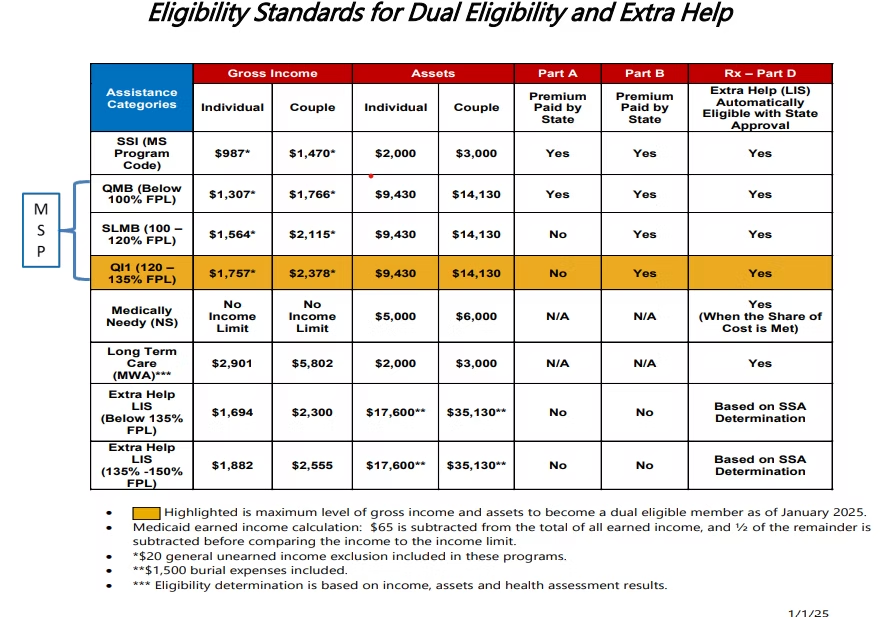FAQs: Understanding Medigap, Medicare Parts A & B, and Related Coverage
A: No, Medigap policies don’t cover everything. They generally do not include coverage for:
- Long-term care
- Vision or dental care
- Hearing aids
- Eyeglasses
- Private-duty nursing
A: The following insurance types are not Medigap policies:
- Medicare Advantage Plans (like HMO, PPO, or Private Fee-for-Service)
- Medicare Prescription Drug Plans (Part D)
- Medicaid
- Employer or union-sponsored plans, including FEHBP
- TRICARE
- Veterans’ benefits
- Long-term care insurance
- Indian Health Service, Tribal, and Urban Indian Health plans
A: If you’re thinking about dropping your entire Medigap policy (not just the drug coverage), consider the timing carefully:
You might want to switch to a different Medigap policy or a Medicare Advantage Plan with drug coverage.
If your dropped plan’s drug coverage wasn’t “creditable” and you wait more than 63 days before enrolling in a new Medicare drug plan, you may have to pay a late enrollment penalty.
A: Medicare Part A generally covers inpatient services, such as:
- Hospital care
- Skilled nursing facility care
- Nursing home care (if more than just custodial care is needed)
- Hospice care
- Home health services
A: Medicare Part B covers outpatient and medically necessary services, including:
- Clinical research
- Ambulance services
- Durable medical equipment (like walkers, wheelchairs)
- Mental health services (inpatient, outpatient, and partial hospitalization)
- Preventive services (e.g., screenings, flu shots)
- Second opinions before surgery
- Limited outpatient prescription drugs
You generally pay nothing for most preventive services if the provider accepts Medicare assignment.


